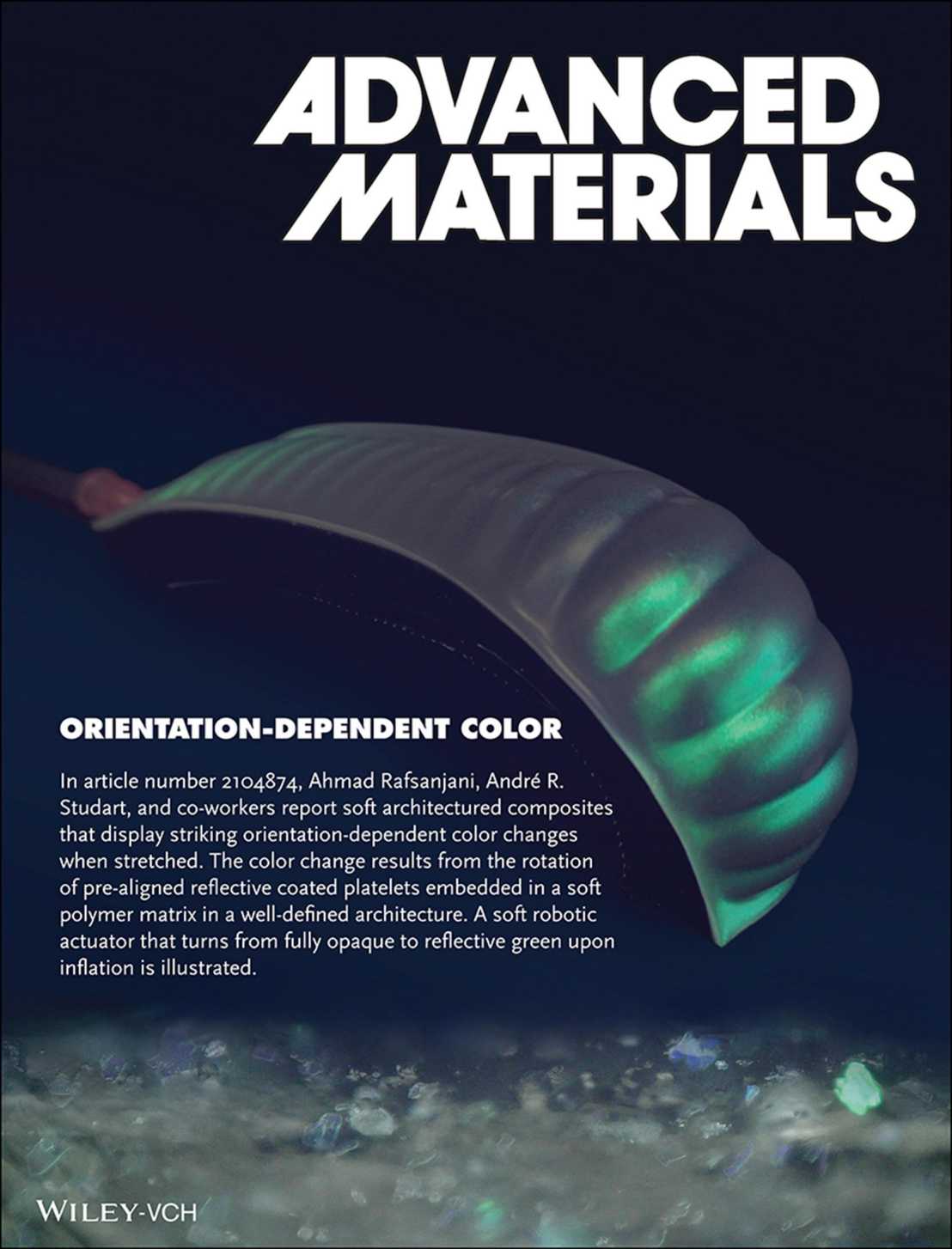Stretching Composites to Get Color
In a recent Advanced Materials publication, researchers at the Complex Materials group developed architectured composites that display striking color changes when stretched in selective directions under ambient light with minimum power input.

Animals such as fishes, squids, and chameleons have evolved elegant and energy-efficient intracellular structures to dynamically control color for communication, warning, protection and disguise. Taking inspiration from the Neon tetra fish, the authors of the external page publication designed and manufactured elastomer-based composites featuring fast and reversible color changes upon mechanical deformation without the need of an external power source. The color of these composites depends on the local orientation and architecture of reflective platelets embedded in the elastomeric matrix. This concept is exploited to create highly stretchable soft materials that take different colors depending on the strain orientation and that can sense mechanical forces based on a powerless optical readout. Composites with strain-activated colors can potentially be used as smart stretchable displays, color-changing soft actuators or as passive mechanical sensors with simple optical readout.
Erik Poloni, Ahmad Rafsanjani, Vadim Place, David Ferretti, and André R. Studart, Stretchable Soft Composites with Strain-Induced Architectured Color, Adv. Mater. 2022, 34, 2104874. external page DOI:10.1002/adma.202104874